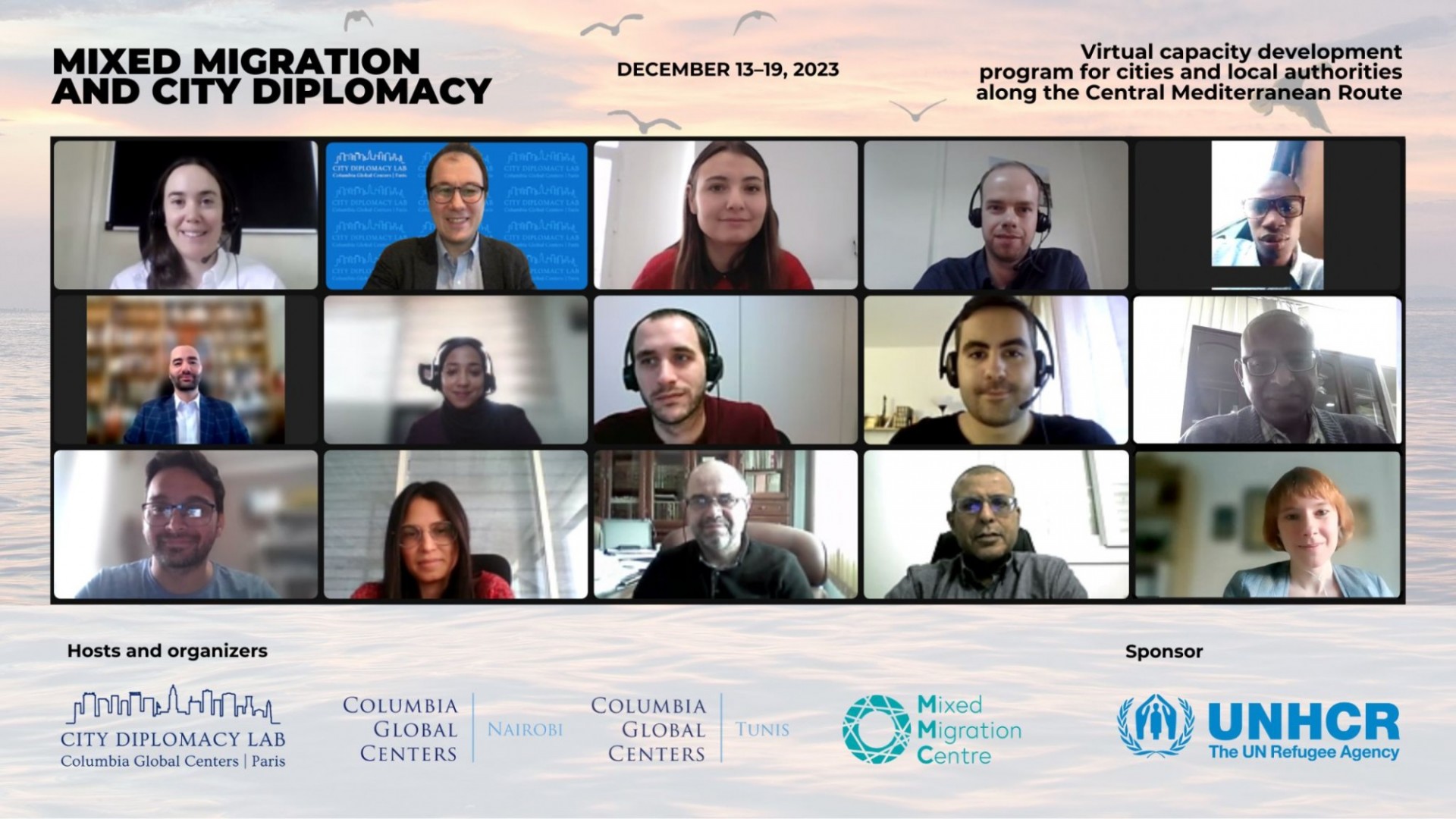Migration and City Diplomacy: Empowering Cities on the Central Mediterranean Route

The Mixed Migration and City Diplomacy online training, a collaborative effort by the City Diplomacy Lab, the Mixed Migration Centre, Columbia Global Centers | Tunis, Columbia Global Centers | Nairobi and UNHCR, the UN Refugee Agency, took place from December 13 to 19. This week-long virtual initiative aimed to empower municipal officers with essential tools and knowledge to navigate the complexities of migration within an urban context.
Mixed migration encompasses the movement of individuals across borders, including refugees escaping persecution and conflict, victims of trafficking, and those seeking improved living conditions and opportunities. The decision to engage in mixed migration is driven by various factors, resulting in participants with diverse legal statuses and vulnerabilities.
Open to municipal officers along the Central Mediterranean Route, the program, led by experts in the field of migration including Ayla Bonfiglio, Head of Mixed Migration Centre (MMC) Eastern & Southern Africa and Columbia University alumna, provided valuable insights and strategies. The training emphasized the central role cities play in mixed migration dynamics, whether as transit points or long-term settlement locations, despite the absence of explicit mandates and dedicated funds for migration programs. There's a growing acknowledgment of the critical role cities play in advancing protection and solutions for refugees and migrants in an increasingly urbanized global landscape.
Throughout the training, participants actively engaged in classes, discussions, and expert-led lectures. The course delved into the significance of cities addressing mixed migration issues and operating along migration routes, exploring various activities, available tools, partnerships, and resources. The culmination of the intensive course concluded with the presentation and discussion of participating cities’ action plans. These strategies represent inspired institutional innovation, incorporating concrete measures to address the challenges faced by cities and local governments in managing migration's humanitarian, socioeconomic, and political components. Each plan aims to empower urban communities, fostering sustainable development by involving migrants, residents, and local actors in impactful international cooperation activities.
With the rising migration crisis in Tunisia, CGC Tunis will continue its efforts by providing similar trainings and projects. This initiative is part of a broader commitment, reflecting one of many initiatives CGC Tunis will undertake this year.